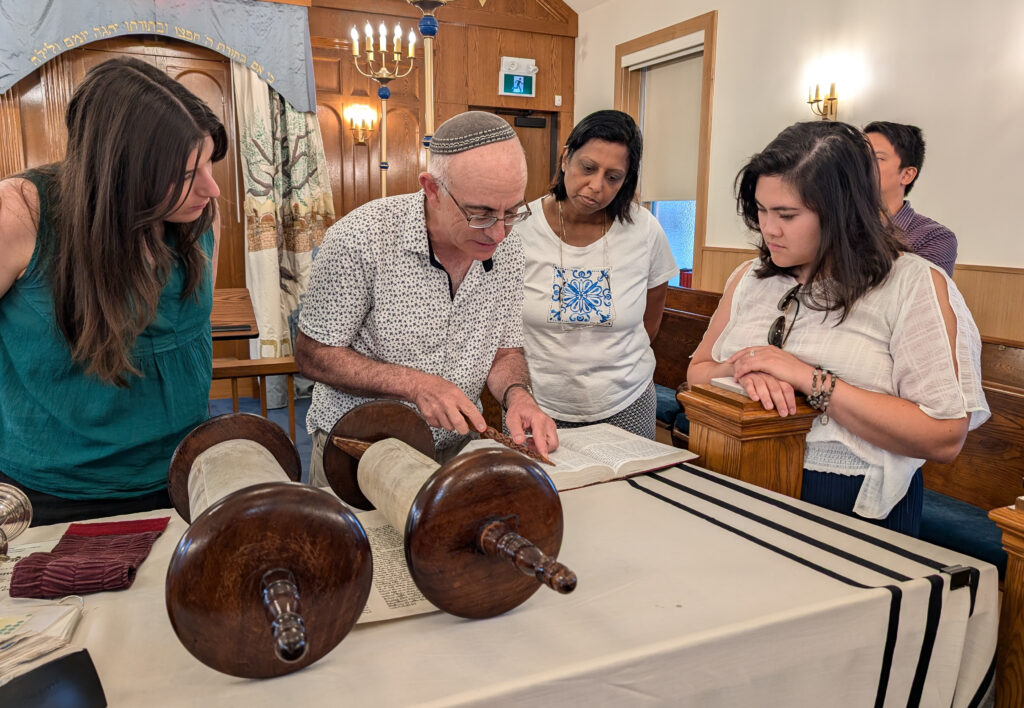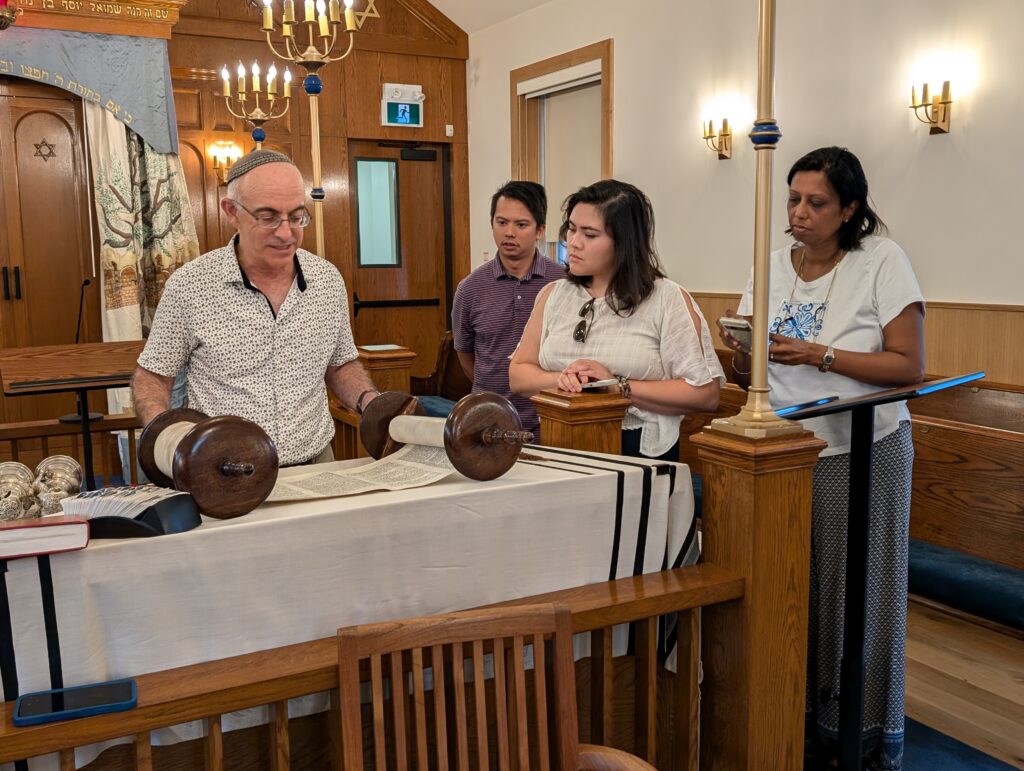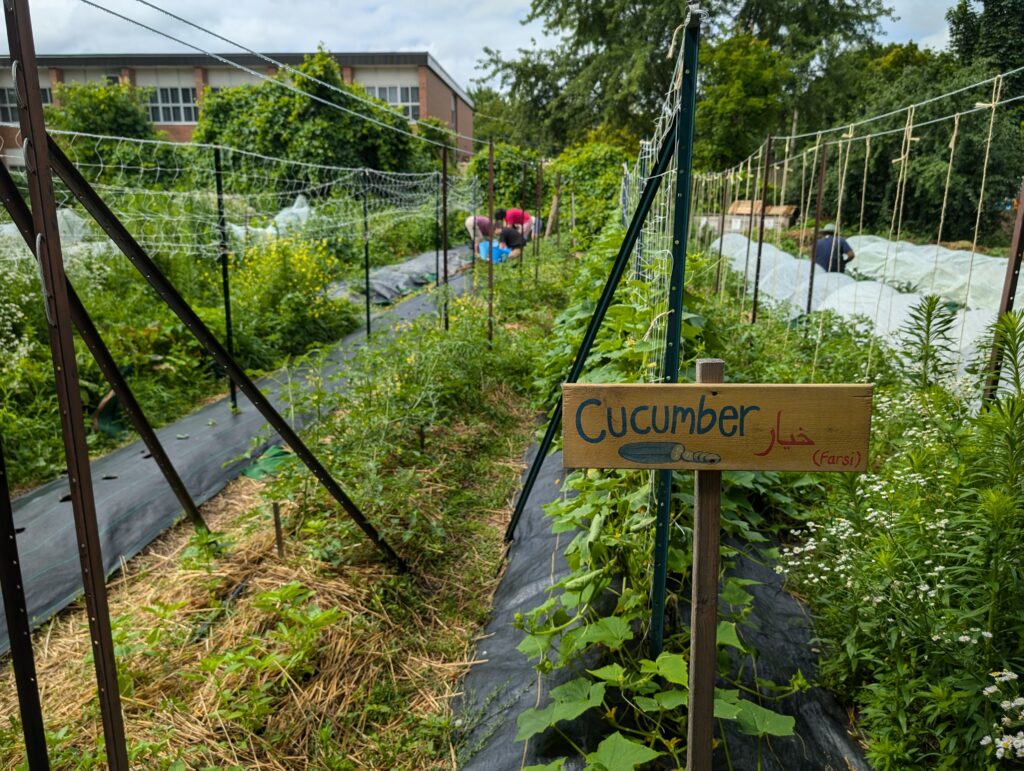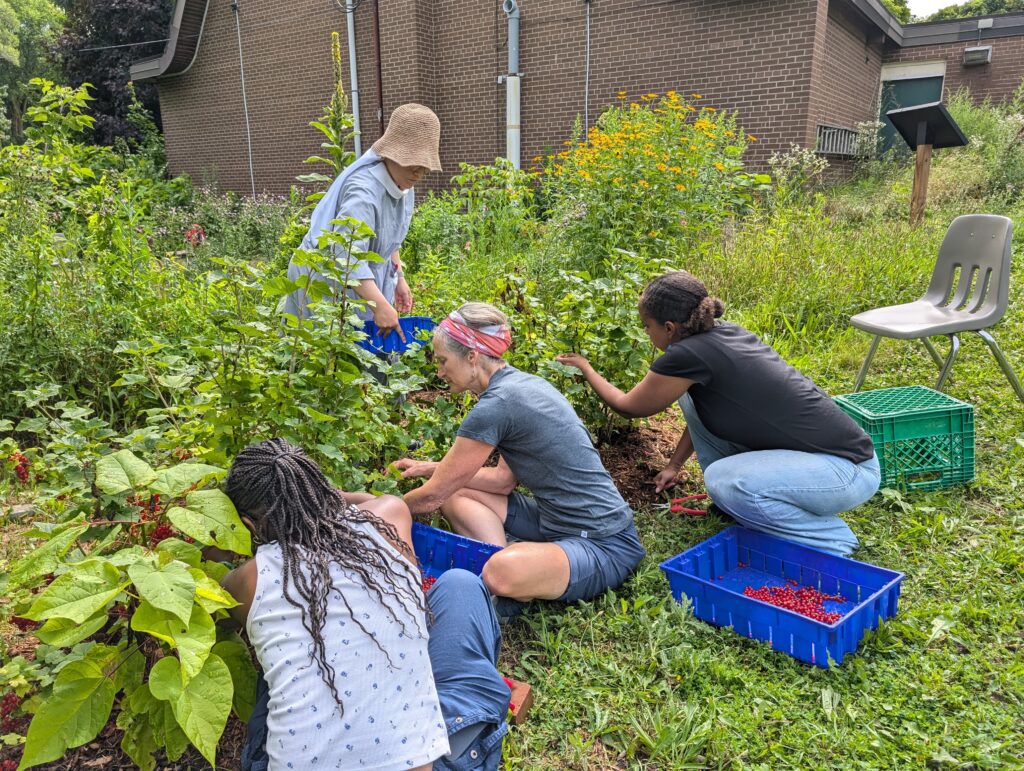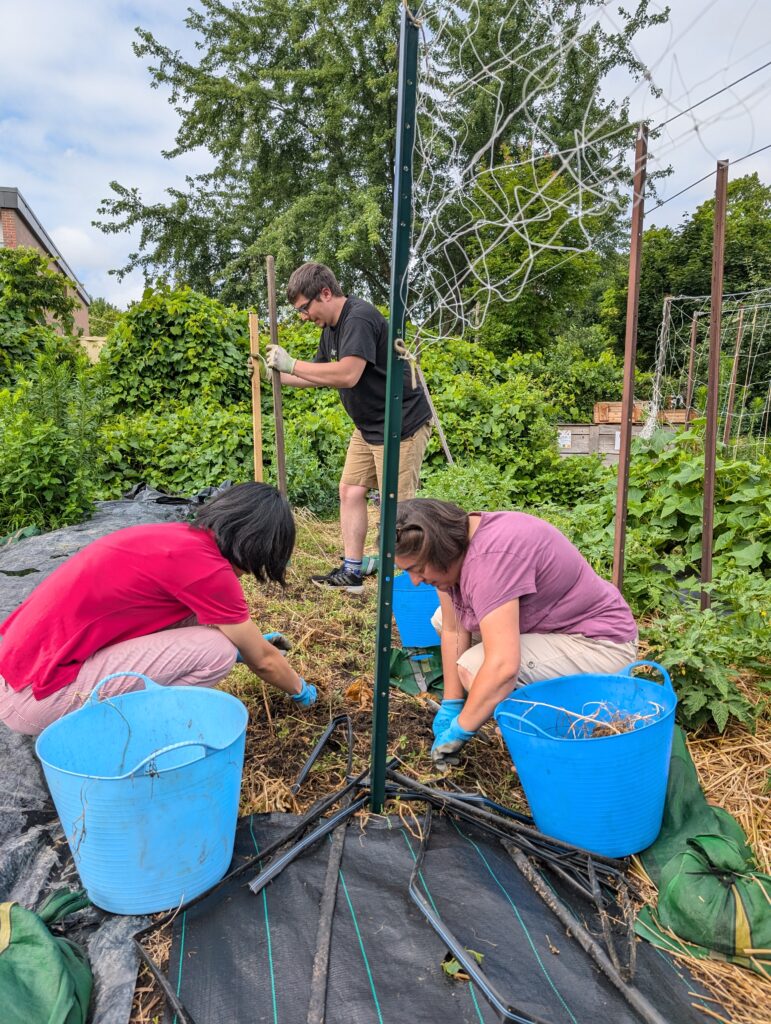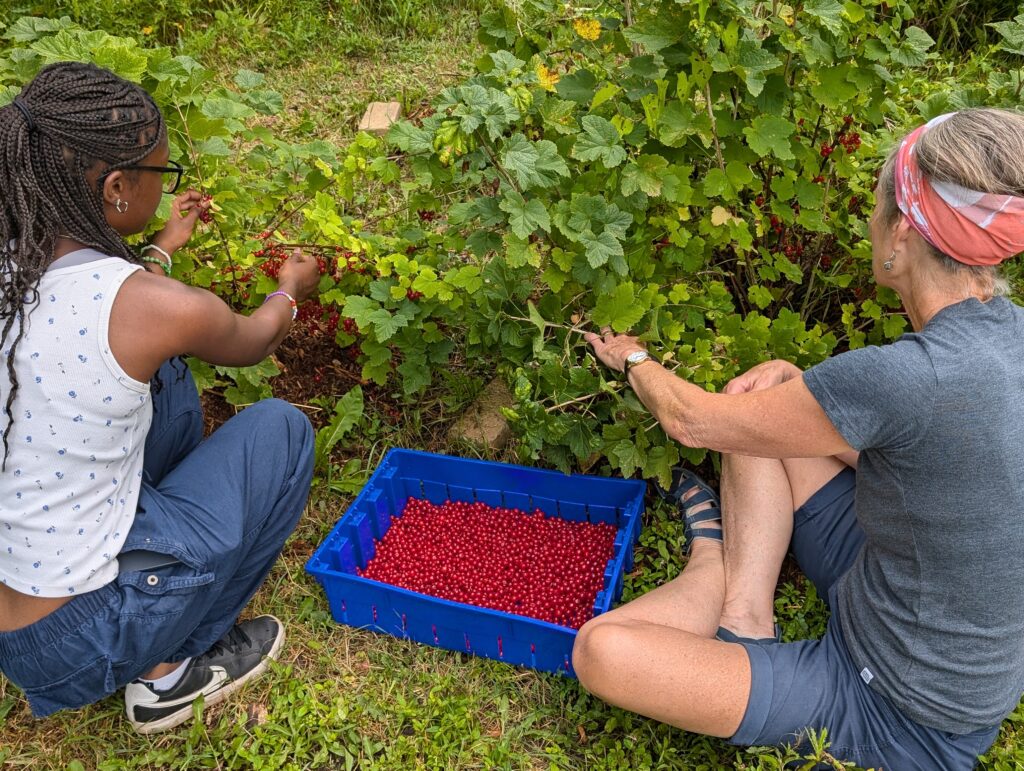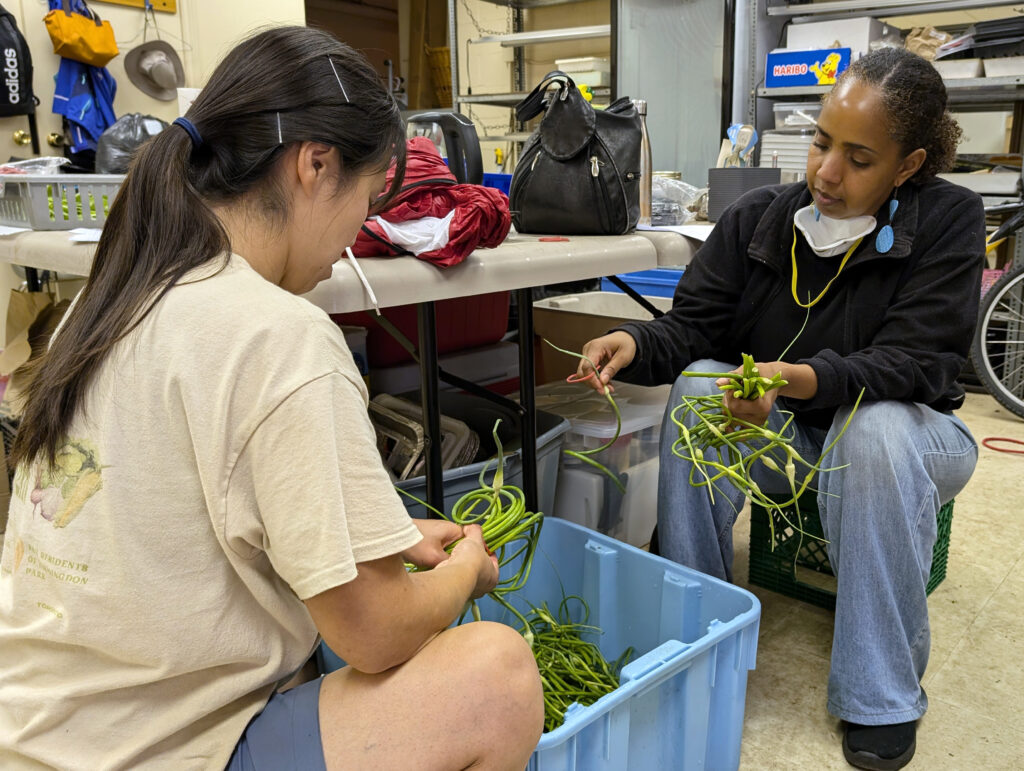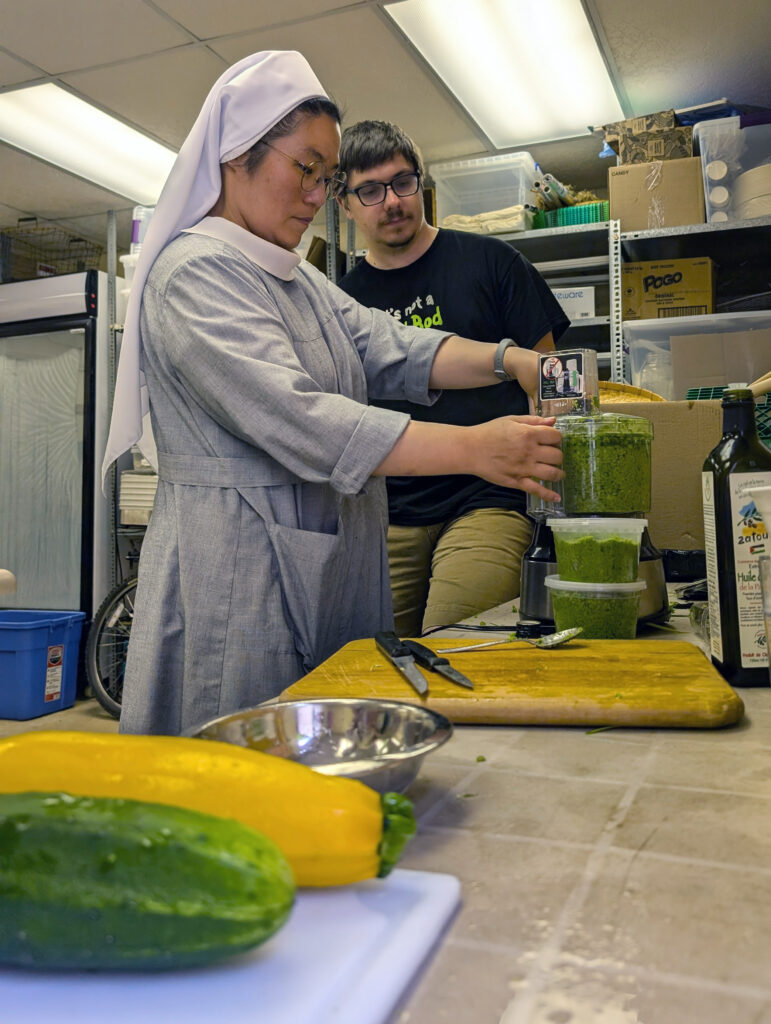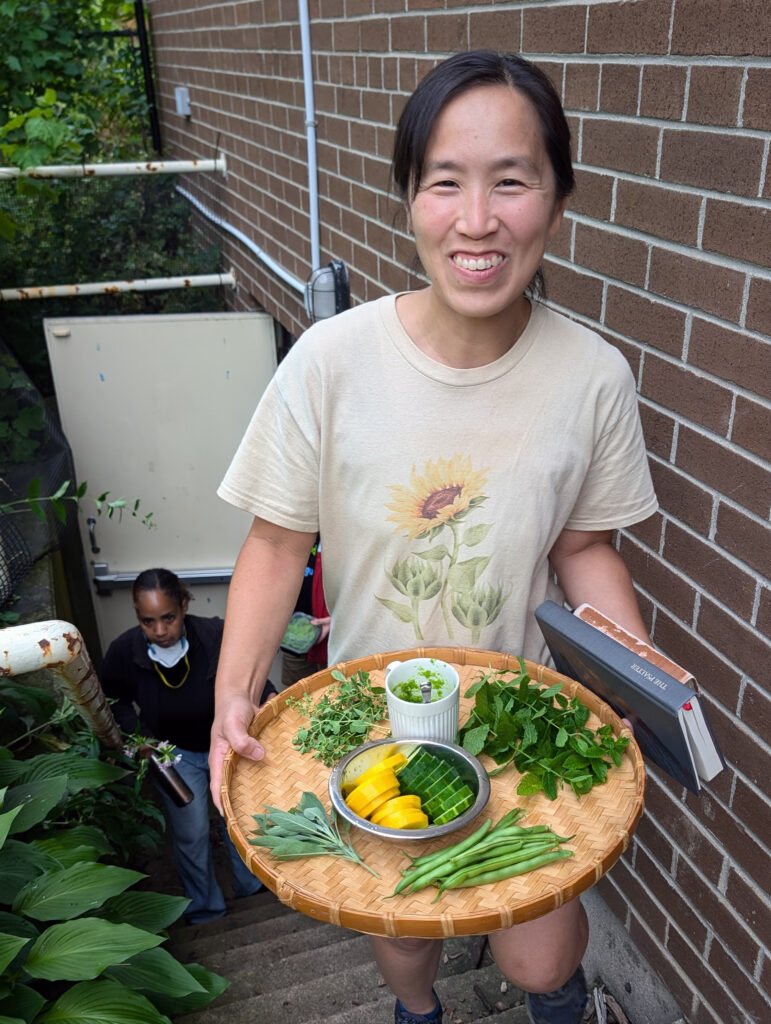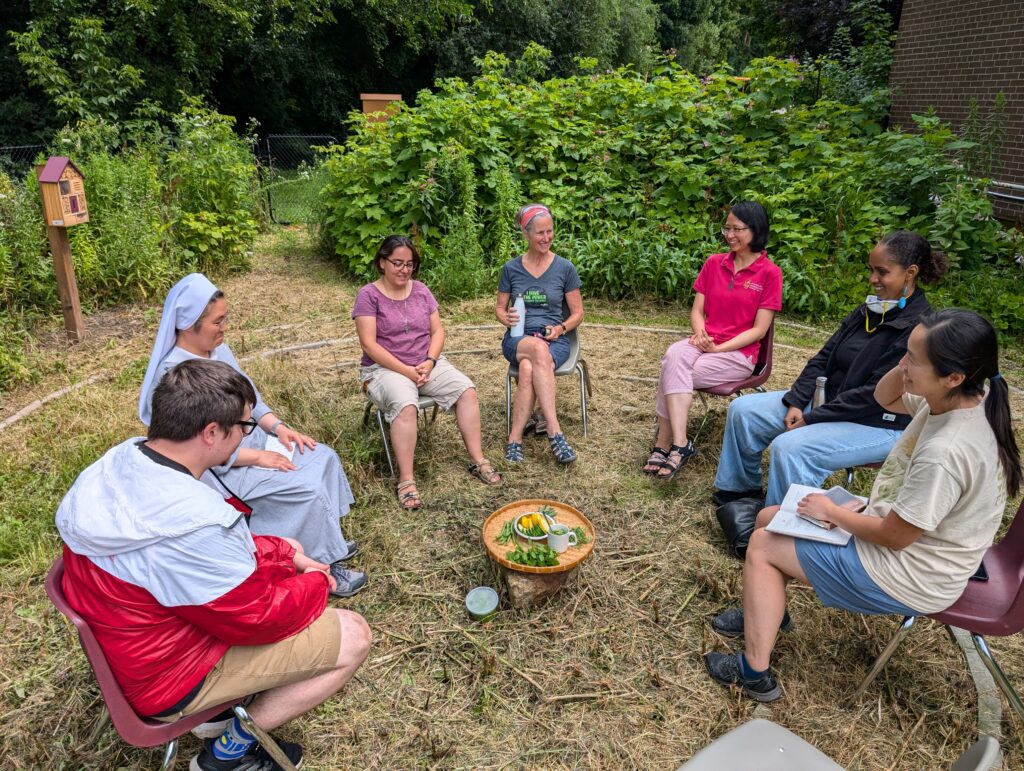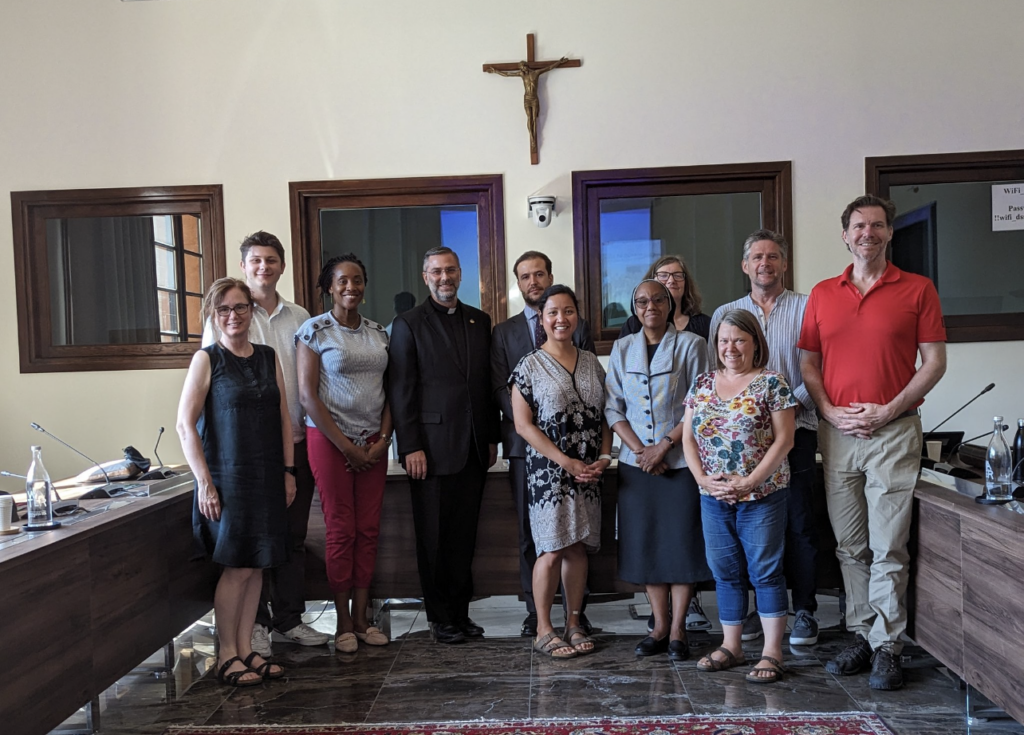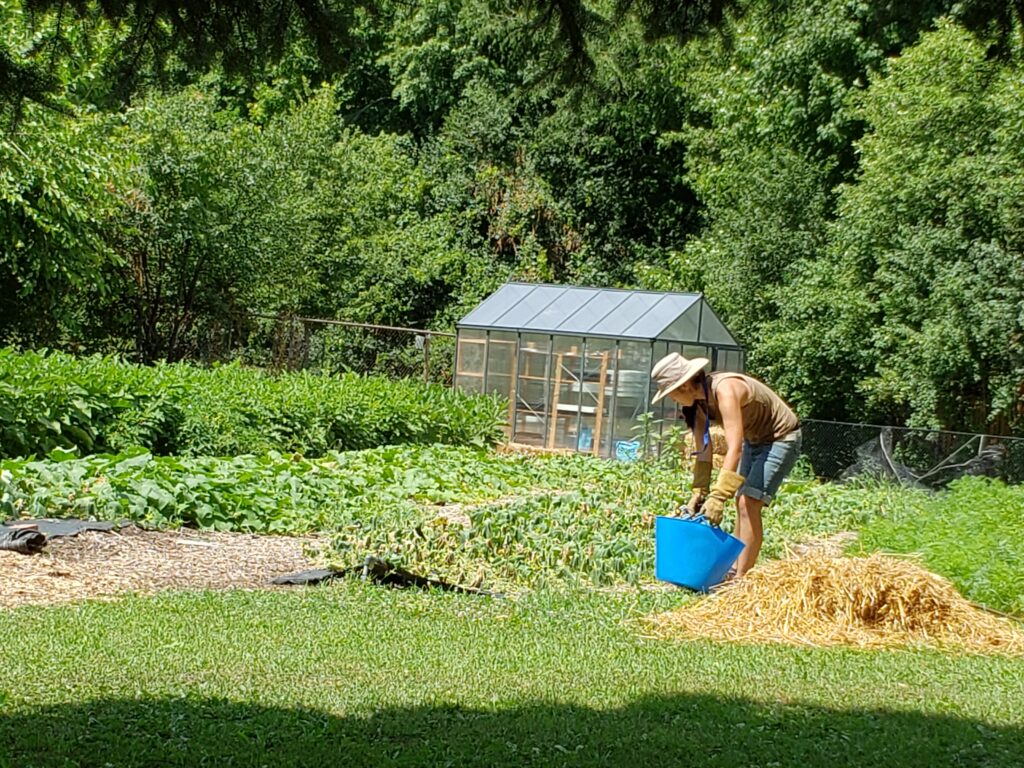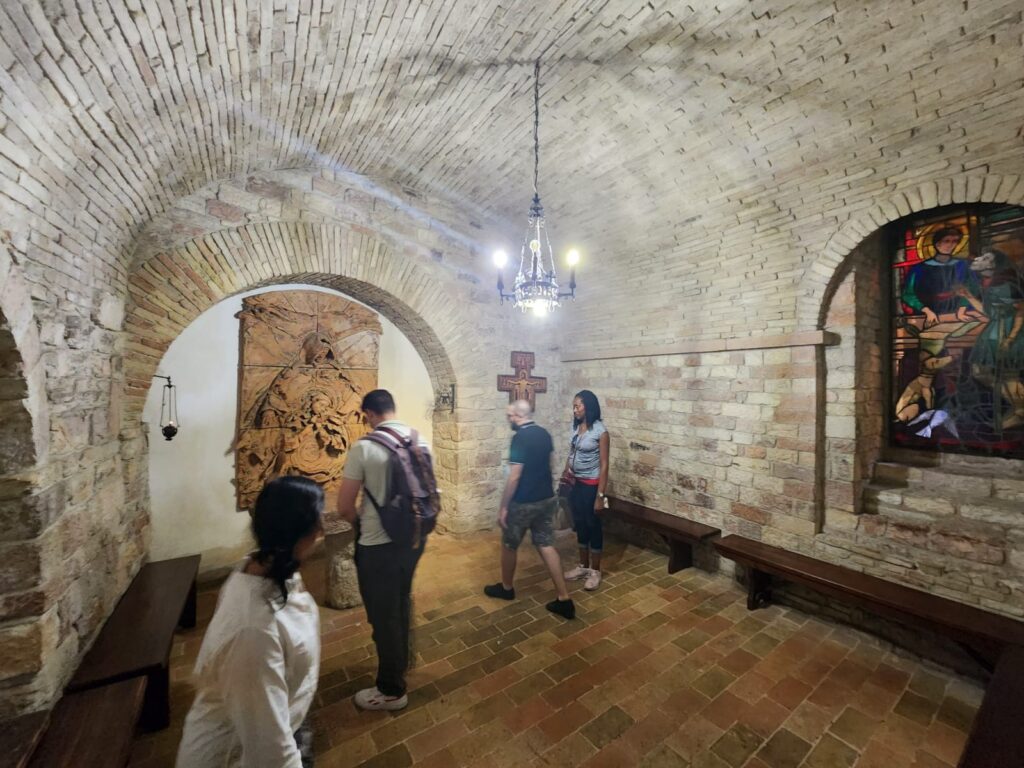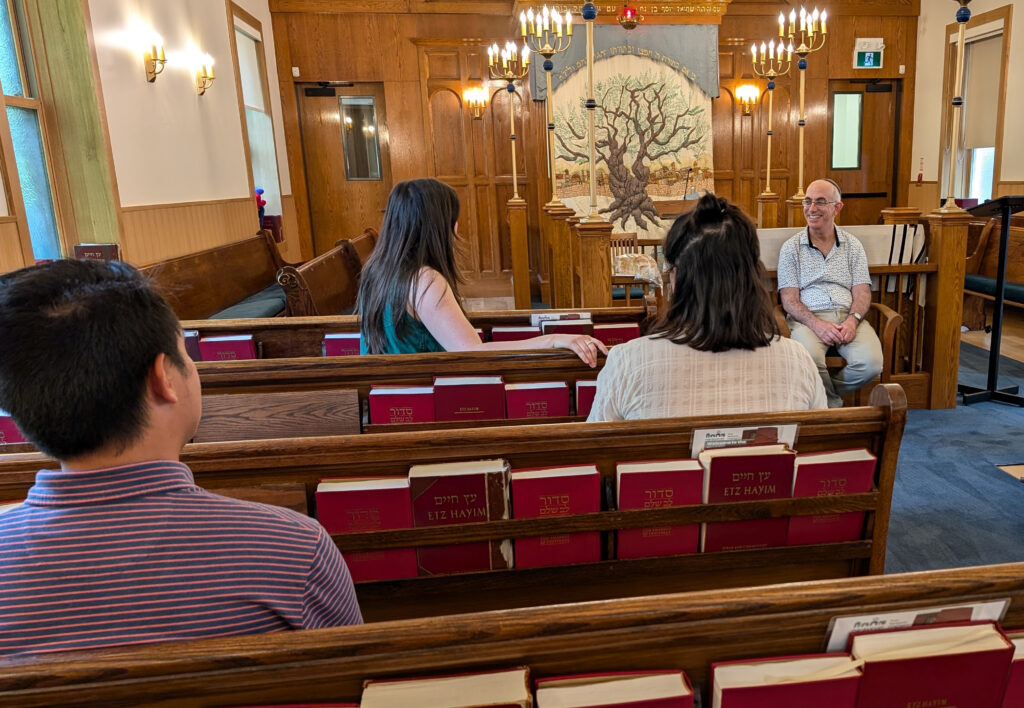
Interfaith in the City, part of Regis St. Michael’s summer experiential learning program, exposed students this summer to Toronto’s rich religious diversity. Course instructor Mia Theolcharis took participants to visit different houses of worship all over the city, where they were introduced to non-Christian prayer and liturgy, view sacred spaces, and observe different religions’ approach to social justice. At First Narayever Congregation, located on a residential street in Toronto’s Annex neighbourhood, Rabbi Edward Elkin introduced students to life in a Jewish shul, or synagogue.
“I really wanted to learn more about the different world religions, and I thought it was exciting to have the experience of doing these different site visits and be able to converse with people from various faith traditions,” said Robyn Aguila, who is pursuing a Master of Theological Studies degree at St. Augustine’s Seminary.
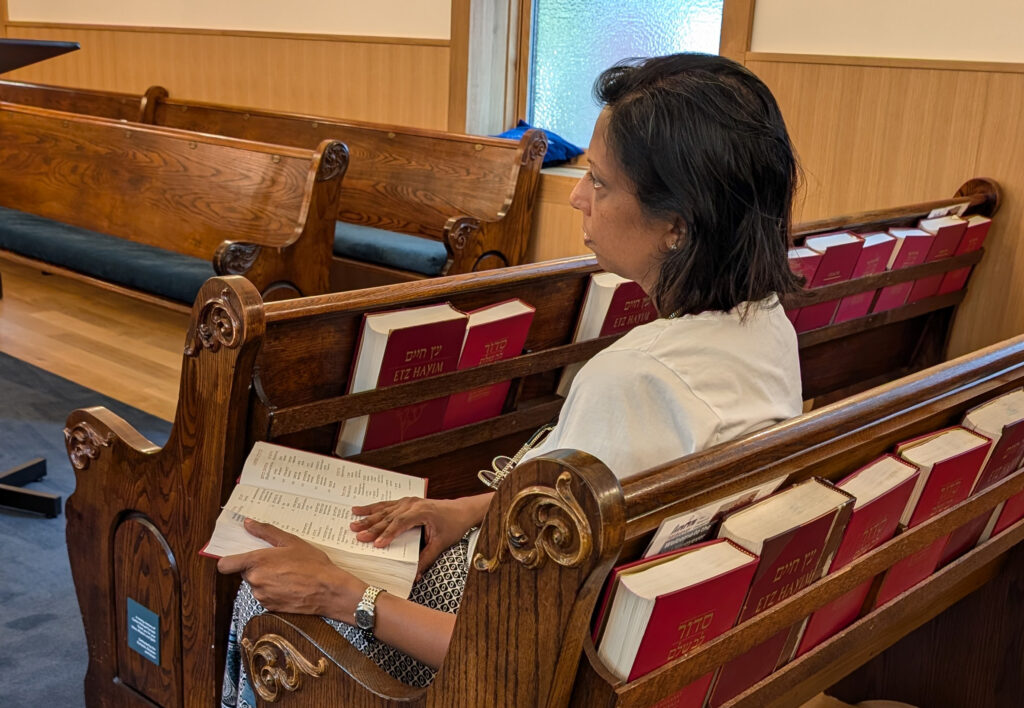
In addition to the visit to the shul, the class spoke with Jeffrey Braff, a Tibetan Buddhist monk, and visited the ISKCON Hare Krishna Temple, the Native Canadian Centre of Toronto, and Masjid Toronto, a Muslim mosque.
Rabbi Elkin began by explaining how First Narayever Congregation derives its name from the Ukrainian village where the community’s founders had emigrated from in the early 20th century and he shared how the congregation has evolved from its Orthodox roots to become a traditional and egalitarian community that serves Toronto’s downtown Jewish population.
He answered the students’ questions that ranged from how one becomes a rabbi to the Jewish interpretation of the Messianic prophecies.
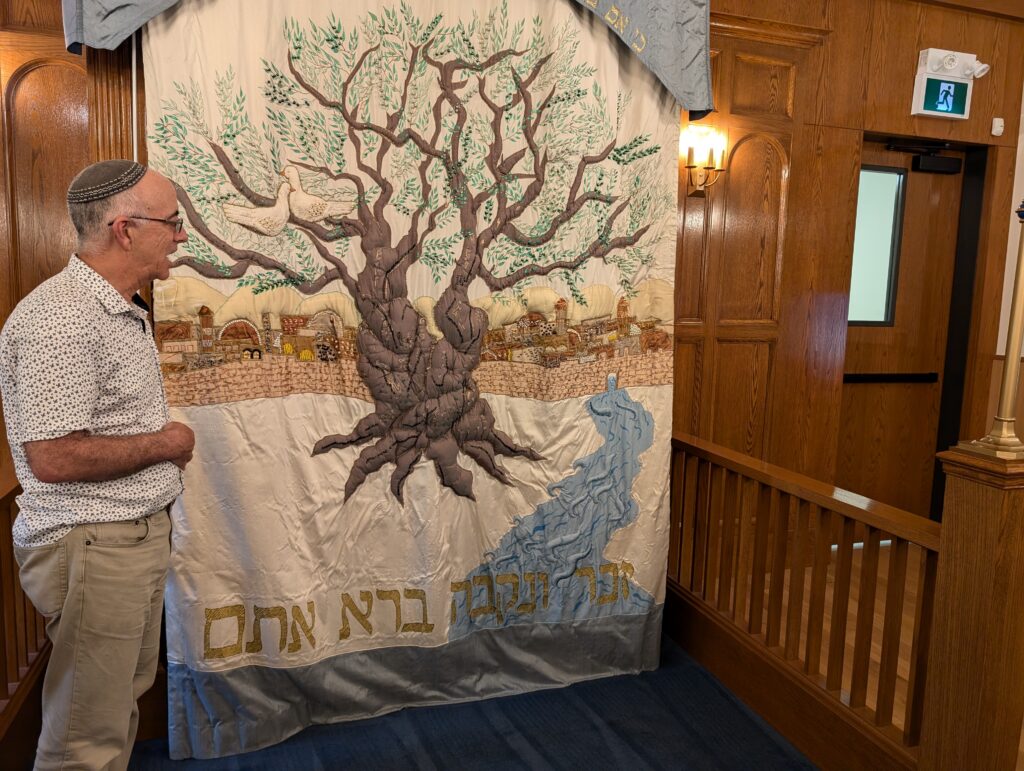
“I work in high school chaplaincy, and I wanted to be able to better understand the different people within my community, so that I could accompany them better and walk with them in their journeys of life, said Robyn.
When asked about Jewish prayer life, Rabbi Elkin encouraged students to open the prayer books found in the pews. The books open right to left and the prayers are written in Hebrew with English translation.
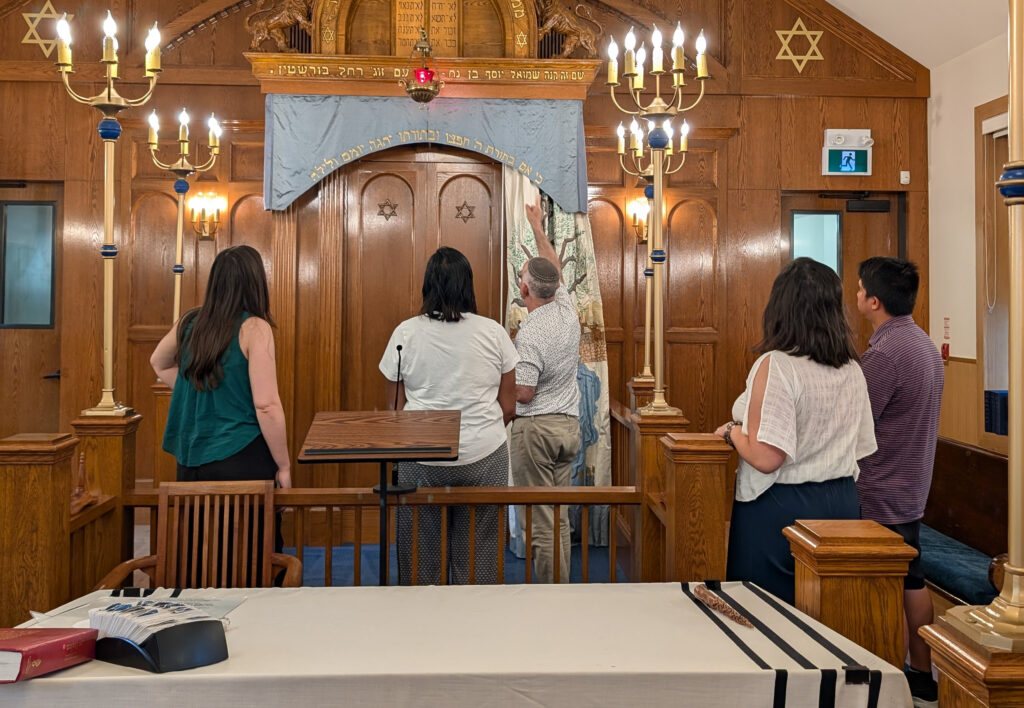
The congregation’s Torah scrolls are kept in the Torah ark, the holiest place in the synagogue. At First Narayever Congregation, the ark is behind an ornate tapestry that depicts the Tree of Life.
“This visit showed me that there are a lot of similarities with Christianity. In addition to learning about the Jewish faith, it helped me understand the roots of Christianity,” said Sneha Jeyaseelan, who is studying for a Master of Pastoral Studies degree at Knox College.
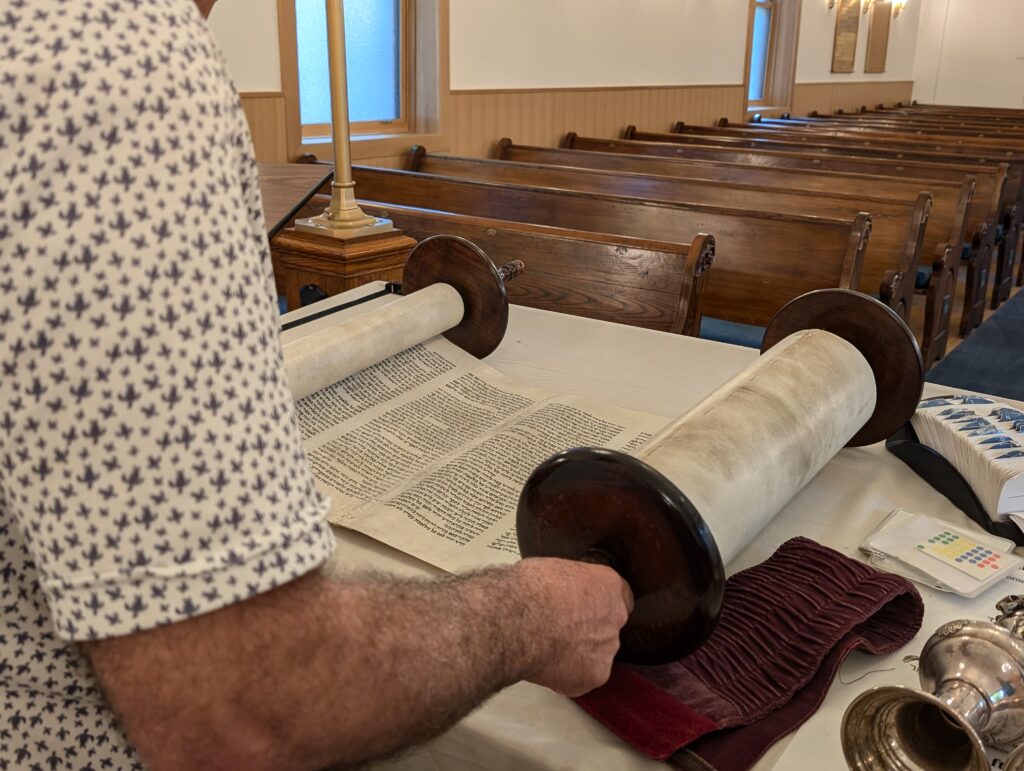
Students could examine the handwritten Torah scrolls and received a quick lesson on how one would cantillate – or chant — the scripture.
“It’s one thing to read something and it’s another to actually experience something firsthand and see things unfold before your eyes. I think it’s great to have a dialogue instead of just reading from a textbook. Being able to have real conversations and share human experiences allows me to relate on a tangible human level,” said Kim Christian Pacis, who is working towards his Master of Theological Studies degree at St. Augustine’s Seminary.
